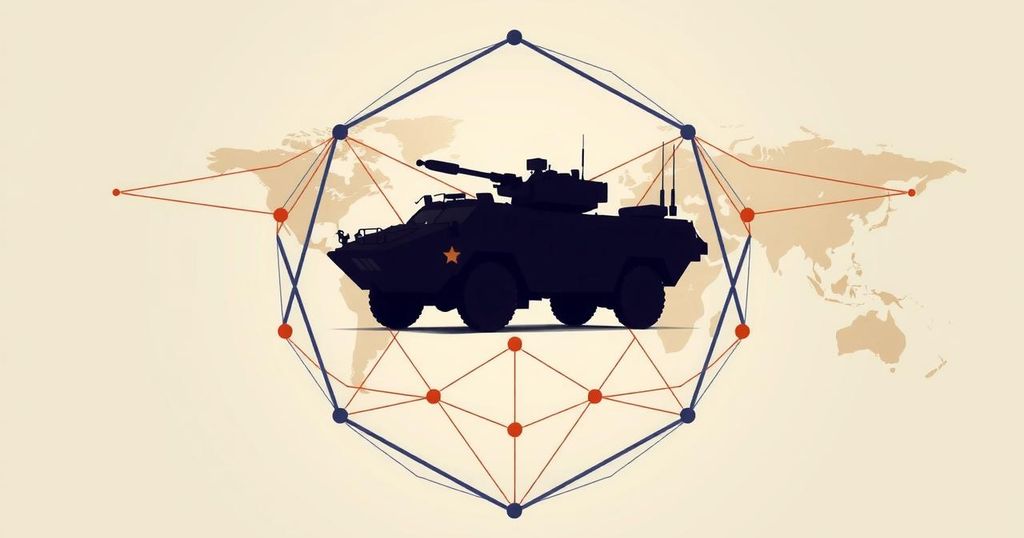Equatorial Guinea has signed a contract with Egypt for Kader-2 and Kader-1 armoured vehicles for its Ministry of National Security. This deal follows a visit by Vice-President Teodoro Nguema Obiang Mangue to Egypt and includes an extended training program for Equatoguinean police personnel, aiming to enhance national security.
In January 2024, Equatorial Guinea secured a contract for the delivery of armoured vehicles from Egypt’s Kader Factory for Developed Industries, which operates under the Arab Organization for Industrialisation. This deal includes Kader-2 armoured vehicles and Kader-1 riot control units intended for the Ministry of National Security. The Kader-2 vehicle, previously known as the El-Daraa or Shield, was formally introduced in December 2024.
The contract represents a strategic shift for the Kader Factory, which has focused on producing export-oriented light armoured vehicles, in addition to its long-standing production of the Fahd armoured personnel carrier for domestic military and police forces since 1984. This agreement follows a visit by Equatorial Guinea’s Vice-President Teodoro Nguema Obiang Mangue to Egypt in June 2024, where he toured the Kader Factory.
Additionally, the visit facilitated an agreement for the Egyptian Ministry of Interior to extend its training program for Equatoguinean police personnel by eight months, with the goal of equipping 1,200 individuals in Malabo, Equatorial Guinea’s capital.
Equatorial Guinea’s recent arms acquisition aligns with its national security strategy and reflects strengthening ties with Egypt, particularly in defense and internal security sectors. The choice of the Kader Factory highlights Equatorial Guinea’s intent to modernize its military capabilities with export-oriented products developed in Egypt, a nation experienced in the armament industry with a focus on light armoured vehicles.
In summary, Equatorial Guinea has made a significant move to enhance its security capabilities through a contract with Egypt for armoured vehicles. This deal not only provides necessary military equipment but also fosters deeper collaboration in training Equatoguinean police forces. Such initiatives are indicative of a broader ambition to strengthen national defense mechanisms and improve law enforcement efficacy.
Original Source: www.janes.com






